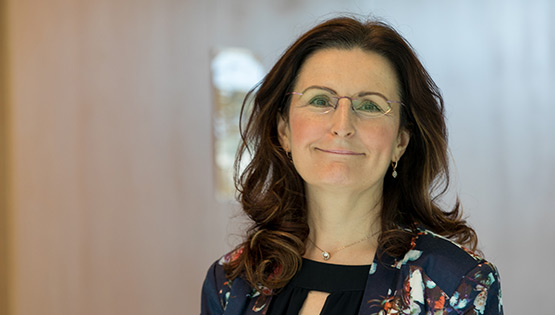Masters
2 years
Hybrid - Part-time
90 ECTS
September 2025
Postgraduate Virtual Open Event (Surgery and Medicine)
Looking to learn more about our postgraduate programmes in Surgery and Medicine? Join us on Wednesday, 29 January at 6pm (GMT).
Register nowAbout
Enhance your development on the Master of Surgery (MCh) from the RCSI Department of Surgical Affairs.
Meet the challenges and opportunities specific to the surgical profession in the wider context of the healthcare and medical community as you explore areas of professional development that are not specifically addressed in any current higher specialist training programmes.
The research component pushes you to focus on your individual interests and professional development within the greater healthcare context, and as the first programme in Ireland to incorporate a taught component you'll develop a skill set that cannot be adequately developed through research alone.
This programme runs full-time over one year on a hybrid model, with 80% online with 20% face to face days on campus. Each module will have at least one- or two days' face to face.
This course is a Level 9 award on the Irish National Framework of Qualifications.
Hear from Programme Director, Dr Marie Morris as she introduces you to the programme and its benefits.
The course is also offered on a full-time basis over one year.
Explore the main principles of healthcare ethics and law
Identify and evaluate circumstances that raise potential legal liability
Recognise and manage errors in surgical practice
Consider the medical device design process
Analyse stakeholders and organisational culture within your service
Develop research skills and expertise
Suitable for
The programme greatly benefits medical graduates planning a surgical career in obtaining a higher degree in surgery. This programme can be undertaken before, during or on completion of a structured surgical training programme.
What you will learn
Equip yourself with the tools to prepare, manage, and design a substantial research project
Gain a deeper understanding of ethical and legal issues in healthcare and clinical research
Complete a substantial research dissertation in your chosen specialty, suitable for peer-reviewed publication
Optional modules
Get hands-on experience in medical invention, from identifying unmet needs to developing clinical and market strategies
Develop your role as a teacher and assessor in clinical practice
Enhance core skills in professionalism and advanced communication principles and practices
Understand the global healthcare context and surgical needs in developing countries and humanitarian crises
Learn the evolution and principles of lean healthcare and its impact on patients and patient value
Gain hands-on experience in medical invention, focusing on identifying unmet needs and developing strategies
Enhance your ability to assess and manage common musculoskeletal conditions in primary care
Build on the skills from the Primary Care (Orthopaedics) I module
What our students say
Faculty highlight
Register your interest
Interested in learning more about this programme? Submit your details below and a member of the team will be in touch.
Course information
This programme will provide you with the skills and knowledge to:
- Understand the major principles of healthcare ethics and law and their application to a surgical setting.
- Understand the legal, regulatory and ethical requirements in the conduct of human subject clinical research.
- Recognise issues and circumstances in healthcare practice and clinical research that raise potential legal liability.
- Understand the frameworks necessary to analyse and critically evaluate claims based on expert knowledge.
- Develop an idea into a comprehensive research strategy.
- Recognise and manage errors in surgical practice due to human error or medical/surgical devices.
- Understand the medical device design and development process, from concept to commercialisation.
- Comprehend the role of surgery in global health and policymaking in emerging health systems of developing countries.
- Analyse stakeholders and organisational culture within the organisation or service which they work.
Our Master of Surgery (MCh) by Module programme has a diverse range of modules tailored to support your career development. We have three core modules and a choice from eight optional modules. An MCh award requires completion of 90 ECTS.
You must complete three mandatory modules totaling to 55 ECTS and then select four optional modules from a range of eight, totaling 35 ECTS. These consist of three 10-ECTS modules and one 5-ECTS module.
Mandatory modules – 55 ECTS
| Module | Description |
|---|---|
| Research Methods: Protocol Design, Research and Analysis 15 ECTS |
This module will equip you with the tools to prepare, manage, and design a substantial research project. |
| Healthcare Ethics, Law and Clinical Research 10 ECTS |
This module aims to provide surgeons in training with an opportunity to gain a deeper and more systematic understanding of ethical and legal issues both in principle and in practical aspects of health care and clinical research. |
| Research Dissertation 30 ECTS |
In order to successfully achieve the qualification of a Master of Surgery, you must complete a substantial research dissertation in a specialty of your choice. The dissertation must be original scholastic work, though not necessarily lab- based, suitable for peer-reviewed publication in a journal of high impact. You will consult with supervisors at regular intervals throughout the research process and will have at least six months to complete the dissertation. |
Optional modules
You must select four optional modules from a range of eight, totalling 35 ECTS. These consist of three 10-ECTS modules and one five-ECT module.
| Module | Description |
|---|---|
|
Medical Devices, Technology and Innovation 10 ECTS |
The aim of this module is to provide scholars with hands-on experience in the industry of medical invention, from identifying un-met needs to developing clinical and market strategies. The module will also seek to build the participants awareness of the various roles of clinical professionals (surgeons) in the design and development of medical devices. |
| Clinicians as Educators 10 ECTS |
This module aims to support and promote the development of your role as a teacher and assessor in clinical practice. |
| Professionalism and Advanced Communication 10 ECTS |
This module aims to support the development of the core skills below through exploring the concept of professionalism and the principles and practice of advanced communication. |
| Global Surgery 5 ECTS |
The aim of this module is to introduce surgeons in training to the global healthcare context and specific issues relevant to the surgical profession. You are expected to gain awareness of surgical needs unique to developing countries and in humanitarian crises. |
| Lean QI and Healthcare 5 ECTS |
This module aims to develop an understanding of the evolution and guiding principles of lean healthcare and the link between 'lean', your patients and patient value. |
| Leading and Managing your Organisation 10 ECTS |
The aim of this module is to provide you with hands-on experience in the industry of medical invention, from identifying unmet needs to developing clinical and market strategies. The module also seeks to build your awareness of the various roles of clinical professionals (surgeons) in the design and development of medical devices. |
| Primary Care (Orthopaedics) I 10 ECTS |
This module aims to enhance a student's capacity to assess and manage musculoskeletal conditions that commonly present to GPs and in primary care, to conduct a clinical assessment and to perform therapeutic procedures (e.g. joint injections) with use of diagnostic imaging where appropriate and available. |
| Primary Care (Orthopaedics) II 10 ECTS |
This module follows on from the Primary Care (Orthopaedics) I module. |
The Master of Surgery (MCh) is open to all surgical specialties. The programme’s multidisciplinary structure enables you to build an understanding of the complex challenges and opportunities facing surgical professionals in the greater context of healthcare.
This programme can be undertaken before, during or on completion of a structured surgical training programme.
Assessment varies depending on the module but may include presentations (group or individual), written assignments, MCQs, practical examination, micro-teaching assignment, protocol submission, and/or other forms of assessment as directed. All scholars will complete a research dissertation.
We are proud to be a recognised University of the National University of Ireland (NUI).
Recognition by ministries and bodies in other jurisdictions must be determined by the individual applicants.
Admissions
To be considered eligible for the programme, you must:
- Be a MB BAO BCh holder (or equivalent Level 8 undergraduate medical degree) recognised by the World Health Organization.
Due to the academic time commitments of the full-time programme we strongly advise those in full-time employment to pursue the part-time programme.
As part of the application process you are required to submit the following supporting documentation:
- Full CV to include the following:
- Employment information: job title/level/location
- Academic history: Have you taken MRCS Part A or B? If yes, please provide institution name, result and date taken
- Research: have you published research? Yes/no; please provide reference
- Copy of passport
- Copy of educational transcripts
- Proof of sponsorship (where applicable)
- Evidence of English-language qualification (where applicable)
- A 300-word response to the question: “How do you perceive this programme will enhance your career?”. Please note that all responses will be screened for AI-generated content.
You must have one of the following:
- IELTS >6.5 (or equivalent) achieved in all sections (reading, writing, and oral) or equivalent must be submitted. Read more about minimum English-language requirements here.
- You are exempt if you completed undergraduate or postgraduate studies full-time in the medium of the English language (three or more years, cumulatively).
Total fees: €9,050 (EU and non-EU fee)
- Year 1: €5,430
- Year 2: €3,620
NCHDs working in the HSE full-time may be able to combine Continuous Professional Development Support Scheme (CPD-SS) funding and Training Supports Scheme (TSS) funding to cover up to €5,500 over two years of the programme (€2,740 per year).
Prospective candidates can check if they are eligible for this funding by emailing cpdss@rcsi.com.
Payment structure
- First payment (on acceptance of offer): €1,500 + €45 NUI
- Second payment (August): €2,500
- Third payment (January): €1,430
Year 2
- First payment (July): €3,000
- Second payment (January): €620
Please note:
- The fee includes all resources, access to our award-winning online learning portal and access to extensive RCSI-only databases.
- There is a non-refundable online application fee of €100.
- The fee includes an annual NUI fee of €45.
- The fee is payable via the above schedule, where relevant.
- If you have outstanding fees you will not be entitled to receive your grades or be eligible to progress and or graduate (VLE and Library privileges will be withdrawn in these cases).
- RCSI accepts no obligation to refund any fee, or part thereof, in respect of a student who chooses to withdraw from a programme.
- If you choose to withdraw from a programme you are liable for full fees owed for the seat on that programme.
- All NUI parchments are issued in Latin; you will be required to pay an additional fee of €50 to NUI if you wish to have a parchment published in English. Further information can be found here.
- Fees are subject to review annually.
- If you are being sponsored or funded by your employer you should upload a funding confirmation letter in the document upload section on the application portal. A template is available below to download at your convenience.
View our Postgraduate Fees Policy.
How to apply
Applications for our Master of Surgery (MCh) programmes are now closed.
More information in relation to the September 2025 intake will be communicated in due course.
Queries
If you have any questions in relation to deadlines or availability please email PostgradSA@rcsi.ie.




